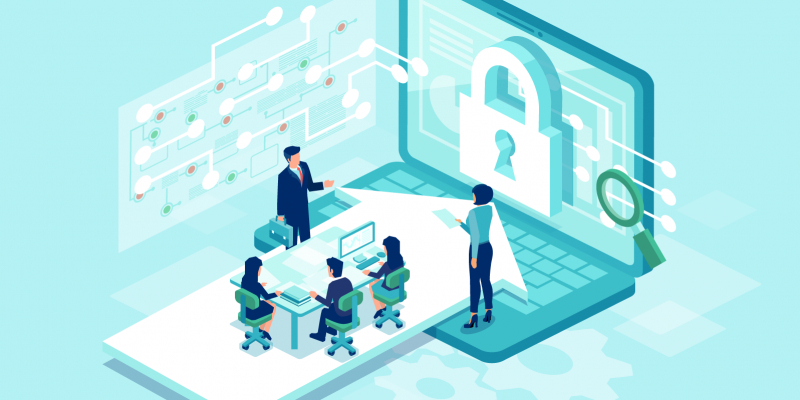Cyber security is a major worry for small and medium-sized businesses. As a result of the COVID-19 outbreak and the ensuing ‘Work from Home’ reality that it has created throughout the world, cyber security risks have escalated in 2022. If businesses are to withstand cyberattacks in 2022, they must have a thorough cyber security strategy in place, as well as a robust incident response plan.
Take a look at these statistics on cyber threats and cyber security to get a better sense of the scope of the problem. The cost of cybersecurity was $5 trillion in 2018. Cyber security investment is expected to exceed $13.5 trillion per year by the end of 2025, according to experts.
Cyber-attacks are a common target for small and medium-sized businesses. They are responsible for up to 43% of all cyberattacks worldwide. Only 14% of these businesses have proper security measures in place to protect themselves against malware and cyber threats, including distributed denial of service (DDOS) attacks, spear phishing, and other common security incidents.
Today’s top cybersecurity trends and threats:
In today’s world, your firm will face a number of cyber threats. Aside from the fact that the majority of employees work from home.
- Phishing attempts that attempt to get access to sensitive information or install malware on your company’s networks are still a serious threat.
- Employees and stakeholders within the company are posing insider risks. These dangers might be the consequence of malicious intent or inattention. It’s vital to invest in cybersecurity education and training for employees, as well as remote work endpoint security. If suitable remote working security measures are not in place, they are at risk.
- Ransomware attacks, in which a hacker holds your data hostage until you pay a ransom, may be quite expensive for a small business.
- In the early stages of development, IoT devices might put your organization in danger.
- One of the most dangerous cyber hazards is malware, which involves hackers stealing, erasing, or encrypting data.
- As a result of digital transformation, cloud-based threats are becoming increasingly common. Because cloud computing poses new security dangers, small and medium-sized enterprises must prioritize cloud security.
Table of Contents
How can you ensure that your company is safe if your employees work remotely?
This year, any business that values its bottom line and reputation must invest in cybersecurity. While cybersecurity has always been a major issue, the pandemic has made small and medium-sized organizations more susceptible than they have ever been.
Here are a few tried-and-true methods for keeping your company safe, especially if the bulk of your employees work from home:
Start storing and transferring your data using encryption technology
Encrypting any data you have on the internet is essential. Hackers will have a harder time stealing, destroying, or otherwise tampering with it. When possible, avoid using public wifi networks.
It’s a good idea to use a proxy server to encrypt your data. You will also benefit from extra benefits. Residential Proxy, for example, protects your online identity. Your data is more secure since hackers can’t see or track your internet behavior.
Audits should be done on a regular basis
Audit systems that handle a lot of consumer and financial data on a regular basis. Cybercriminals attack them on a regular basis. If your firm is particularly vulnerable to cyber-attacks, you may consider conducting incident response tabletop exercises to evaluate your cyber incident response procedures. These tabletop workshops will help you figure out if your cyber incident response protocols are up to the task and effective enough to protect your business in the event of a breach.
Your company’s data and information should only be accessible to your employees
Human error, which is the major cause of information security concerns, is reduced by restricting access to vital organizational data. Employees should only have access to the systems and data they need to do their jobs.
Take immediate preventative actions, such as deleting passwords and accounts from all systems and collecting corporate ID badges and entrance keys, if an employee leaves your company or transfers to another location.
An ounce of access restriction can equal a pound of protection when it comes to mitigating the impact of a disgruntled ex-employee.
Make your business secure by investing in it
Effective security software is required for your organization to perform effectively. Invest in antivirus software, anti-spam filters, and anti-spyware software, and keep it up to date. Remove any extensions or programs you aren’t using anymore.
Make backups of your data and protect your computers with strong passwords. Instead of using ordinary passwords, consider using passphrases. It involves the employment of phrases or sets of words, which makes it more difficult to break. For further protection, multi-factor authentication is also required.
RAXA Could help you achieve the optimum security enhancement for your firms. Raxa is the best when its come to providing various security solution to the enterprises and other entities or clients. Services like premier manned guarding, technical security solution and other services.

